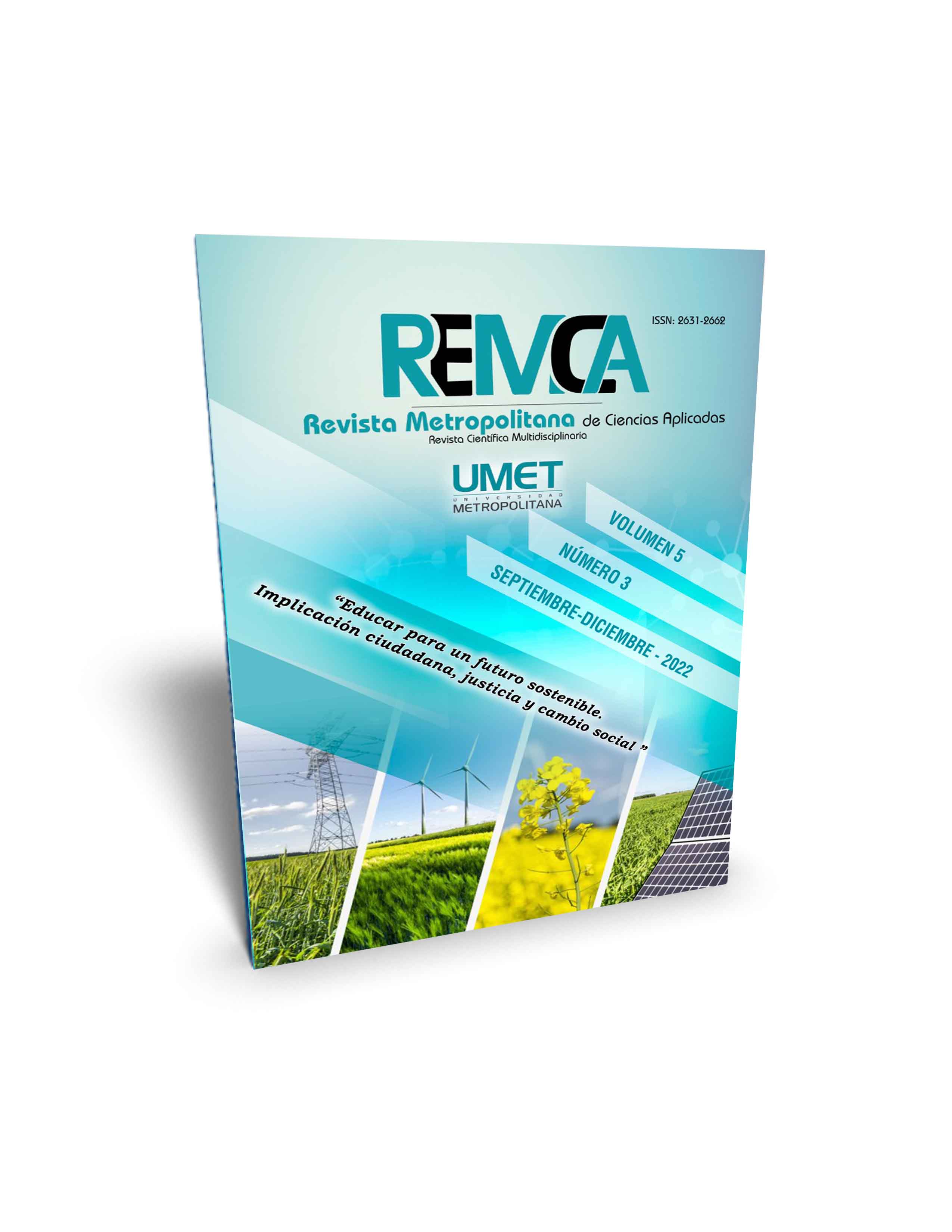Protección de los servicios ambientales de los bosques. Mirada desde el derecho penal ambiental
DOI:
https://doi.org/10.62452/c2rrss14Palabras clave:
Servicios ecosistémicos, derecho penal ambiental, derecho administrativo ambiental, bosquesResumen
Abordar desde la perspectiva del Derecho Penal ambiental la protección de los servicios ambientales boscosos, aportaría a la lograr acercarnos a la eficacia y preocupación internacional por los problemas medioambientales y la desconexión real entre la protección, los beneficios que proporcionan los ecosistemas y la manera irracional de actuación del ser humano ante la naturaleza. Como métodos fundamentales se utilizan el exegético-analítico, para determinar el sentido y alcance de las normativas vigentes en la materia, en conjunción con las instituciones jurídicas relacionadas con el tema, para lo cual se evaluará la validez y eficacia de la normativa vigente sobre la materia; el doctrinal en correlación con el análisis de la legislación vigente, para verificar la necesidad de su perfeccionamiento; el histórico, para abundar en los antecedentes, el contexto y formación de las doctrinas normativas y filosóficas que le sirven de fundamento; y finalmente el de Derecho Comparado, que permitió conocer el tratamiento jurídico que dan otros sistemas de Derecho a una realidad similar y valorar críticamente si amerita una toma de referencia para los propósitos de esta investigación.
Descargas
Referencias
Argentina. Congreso de la Nación. (1994). Constitución de la Nación Argentina. Boletín Oficial de 23 de agosto de 1994. https://www.acnur.org/fileadmin/Documentos/BDL/2001/0039.pdf
Barth, F. (1976). Los grupos étnicos y sus fronteras. La organización social de las diferencias culturales. Fondo de Cultura Económica.
Braudel, F. (1970). La Historia y las Ciencias Sociales. Alianza Editorial, S. A.
Casas, M. (2002). Manual de Tratados Internacionales en Medio Ambiente y Desarrollo Sostenible. Ministerio del Medio Ambiente.
Colombia. Corte Constitucional. (2015). Constitución Política de Colombia. Imprenta Nacional.
Comisión Económica para América Latina y el Caribe. (2016). Horizontes 2030: la igualdad en el centro del desarrollo sostenible. CEPAL.
Costa Rica. Asamblea Nacional Constituyente. (1949). Constitución Política de Costa Rica. Asamblea Nacional Constituyente. https://pdba.georgetown.edu/Constitutions/Costa/costarica49.html
Ecuador. Asamblea Constituyente. (2008). Constitución de la República del Ecuador. Registro Oficial 449. https://www.oas.org/juridico/pdfs/mesicic4_ecu_const.pdf
Ecuador. Asamblea Nacional. (2017). Código Orgánico del Ambiente Ecuador. Registro Oficial N° 983. Imprenta Nacional.
España. Congreso Nacional. (2003). Ley 43/2003 de Montes. BOE No. 280. https://www.boe.es/buscar/doc.php?id=BOE-A-2003-21339
García, E., & Fernández. T. (2006). Curso de Derecho Administrativo I. Félix Varela.
Landecho, C., & Blázquez, C. (1996). Derecho penal español: parte especial: redactado conforme al nuevo Código Penal de 23 de noviembre de 1995. Tecnos.
Lovera, M. (2008). Los Bosques y el Convenio sobre Diversidad Biológica. Supervisión Independiente de la Aplicación del Programa de Trabajo Ampliado. Coalición Mundial por los Bosques.
Medina Peña, R., Domínguez Junco, O., & Medina de la Rosa, R. E. (2017). Fundamentos jurídico-metodológicos para un sistema de pagos por servicios ecosisté¬micos en bosques del Ecuador. Revista Científica Agroecosistemas, 5 (1), 109-117.
Medina Peña, R., Rodríguez Crespo, G. C., & Domínguez Junco, O. (2019). La gestión forestal, innovación, investigación y capacidad tecnológica: mirada desde una responsabilidad social para el desarrollo sostenible. Revista Científica Agroecosistemas, 7(3), 73-79.
Organización de las Naciones Unidas para la Alimentación y la Agricultura. (2016). Evaluación de los recursos forestales mundiales 2015: ¿Cómo están cambian- do los bosques en el mundo? FAO.
Organización de Naciones Unidas. (1972). Conferencia de las naciones unidas sobre el medio humano. https://www.un.org/es/conferences/environment/stockholm1972
Organización de Naciones Unidas. (1992). Cumbre de la Tierra. http://www.un.org/spanish/esa/sustdev/documents/declaracionrio.htm
Organización de Naciones Unidas. (2000). Resolución 2000/35 del Consejo Económico y Social. ONU.
Perú. Congreso Constituyente Democrático. (1993). Constitución Política del Perú. https://www.congreso.gob.pe/Docs/files/documentos/constitucion1993-01.pdf
Quétier, F., Tapella, E., Conti, G., Cáceres, D., & Díaz, S. (2007). Servicios ecosistémicos y actores socia- les. Aspectos conceptuales y metodológicos para un estudio interdisciplinario. Gaceta Ecológica, (84- 85), 17-26.
Venezuela. Asamblea Nacional. (1999). Constitución de la República Bolivariana de Venezuela. https://pdba.georgetown.edu/Constitutions/Venezuela/ven1999.html
Venezuela. Asamblea Nacional. (2006). Ley Orgánica del Ambiente. Gaceta Oficial de la República Bolivariana de Venezuela No. 5.833. https://www.oas.org/juridico/PDFs/mesicic4_ven_lo_ambi.pdf
Descargas
Publicado
Número
Sección
Licencia
Derechos de autor 2022 Franco Orlando Yaguachi Gualan (Autor/a)

Esta obra está bajo una licencia internacional Creative Commons Atribución-NoComercial-CompartirIgual 4.0.
Los autores que publican en la Revista Metropolitana de Ciencias Aplicadas (REMCA), están de acuerdo con los siguientes términos:
1. Derechos de Autor
Los autores conservan los derechos de autor sobre sus trabajos sin restricciones. Los autores otorgan a la revista el derecho de primera publicación. Para ello, ceden a la revista, de forma no exclusiva, los derechos de explotación (reproducción, distribución, comunicación pública y transformación). Los autores pueden establecer otros acuerdos adicionales para la distribución no exclusiva de la versión de la obra publicada en la revista, siempre que exista un reconocimiento de su publicación inicial en esta revista.
© Los autores.
2. Licencia
Los trabajos se publican en la revista bajo la licencia de Atribución-NoComercial-CompartirIgual 4.0 Internacional de Creative Commons (CC BY-NC-SA 4.0). Los términos se pueden consultar en: https://creativecommons.org/licenses/by-nc-sa/4.0/deed.es
Esta licencia permite:
- Compartir: copiar y redistribuir el material en cualquier medio o formato.
- Adaptar: remezclar, transformar y crear a partir del material.
Bajo los siguientes términos:
- Atribución: ha de reconocer la autoría de manera apropiada, proporcionar un enlace a la licencia e indicar si se ha hecho algún cambio. Puede hacerlo de cualquier manera razonable, pero no de forma tal que sugiera que el licenciador le da soporte o patrocina el uso que se hace.
- NoComercial: no puede utilizar el material para finalidades comerciales.
- CompartirIgual: si remezcla, transforma o crea a partir del material, debe difundir su creación con la misma licencia que la obra original.
No hay restricciones adicionales. No puede aplicar términos legales ni medidas tecnológicas que restrinjan legalmente a otros hacer cualquier cosa que la licencia permita.




